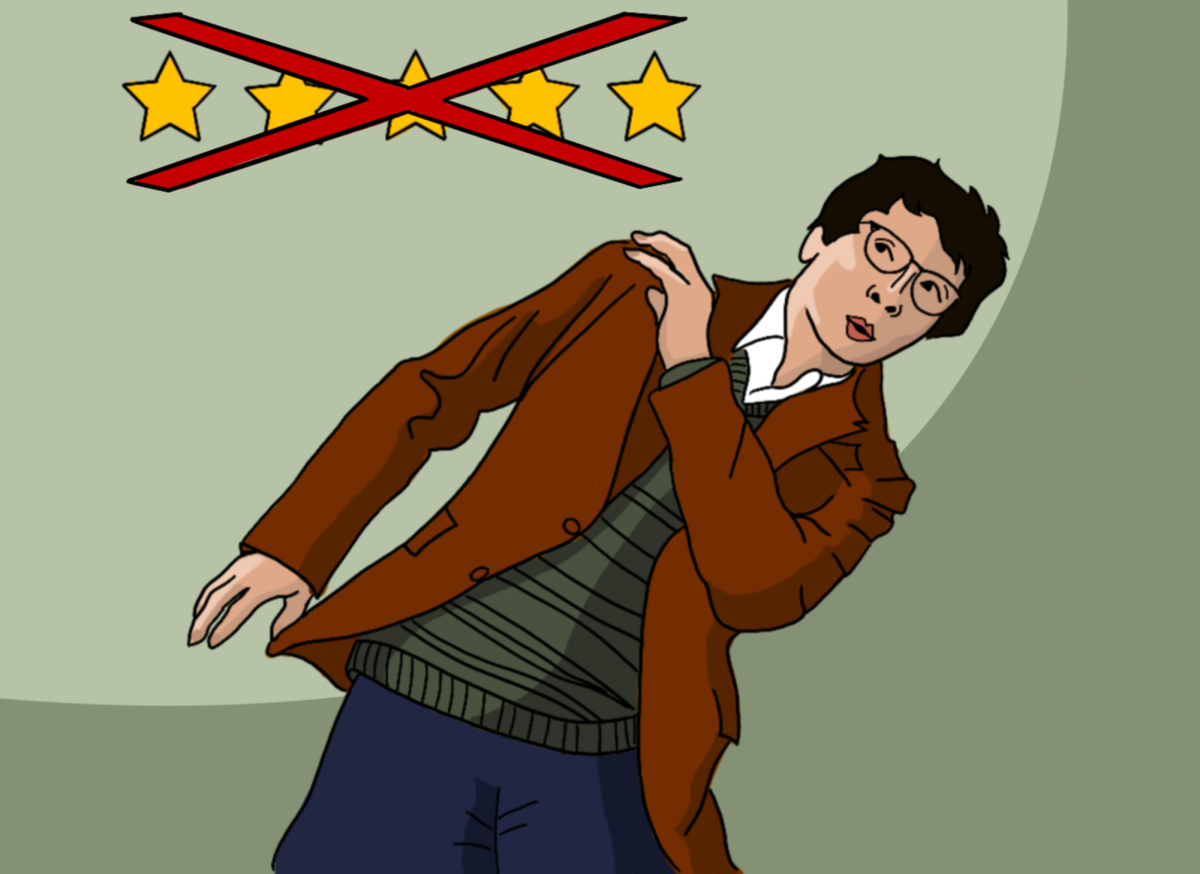
By Linsey Brookfield

Besides successfully propagandizing soulless suburbia and promoting the unbridled capitalistic urge to love working, the latest rom-com offering, “Love Hurts,” does not accomplish much. Marvin Gable (Ke Huy Quan) might be the world’s most wholesome real estate agent, as established through an opening sequence — a scene so lathered with excessive, exaggerated merriment that it reminded me of the video backgrounds of pharmaceutical commercials. But not everything can be sunshine and rainbows — Marvin’s past comes back to haunt him in the form of love interest Rose (Ariana DeBose) and her moves to deface Marvin’s signage with Tumblr-esque mustache doodles. Worlds collide as his brother, the aptly-named kingpin Knuckles (Daniel Wu), reemerges and, with him, Marvin’s dark history as a hitman.
Unfortunately, the plot falls apart immediately. Marvin faces what should be a difficult decision, having to choose between his current and former lives, but the utter lack of chemistry between him and Rose — whose professions of love for one another are stone-faced and synthetic — renders it stale. His choice is unnecessarily dragged out over 84 minutes, making the movie’s relatively short duration feel endless. The relationship that blooms between emo-Robert Frost-wannabe Raven (Mustafa Shakir) and Marvin’s depressed and misunderstood assistant Ashley (Lio Tipton) is exponentially more realistic despite its sheer ridiculousness.
Attempting to sell itself as an action rom-com, “Love Hurts” is plagued with commitment issues, resulting in a non-sequential montage of poorly related subplots and confused character motivations. Perhaps in an attempt to save the film, the painfully overworked script turns to internal monologue voiceovers and overly simplistic clarifications for every non-sequential plot point. The discombobulated script is chock-full of lines that just seemed to fall flat, making the whole movie feel more like a table read than a full-fledged film.
The only humor to be found is in the ironically hilarious content the script provides. My generosity in giving this movie more than a half-star is entirely because I was doubled over in laughter throughout much of it, feeling like my showing of “Love Hurts” was a social experiment. Had it not been for the giddy glee I felt laughing at the movie, “Love Hurts” would have made history as the first movie to make me leave early.
Aside from providing an unintentionally uproarious experience, the only things “Love Hurts” does right are its action scenes and fight choreography. As a big fan of fight scenes in unconventional places that force characters to get creative with their resources, I thoroughly enjoyed the sequences that took place in offices and staged houses. Plus, watching a man as nice as Marvin Gable — played by someone as endearing as Quan — be so violent was amusing.
Alas, not even the presence of two recent Oscar winners, Quan and DeBose, and well-choreographed fight scenes were enough to save the movie. Both actors have been phenomenal in other works, yet Quan’s and DeBose’s performances were shabby, though this was largely the script’s fault. Quan was the perfect choice for such a genuine character, and it was great to see him in a lead role, but it was unfortunate that said role was in this movie. DeBose’s post-Oscar run has included some seriously awful movies, and this only further solidifies her tragic fall.
The supporting actors delivered enjoyable performances, with Marshawn Lynch particularly standing out as the gang member King, providing some of the film’s only intentional comedic moments. However, his role was ultimately irrelevant to the plot. The presence of Drew Scott of “Property Brothers” as Marvin’s rival realtor, Jeff Zaks, was an equally welcome addition. However, in classic action movie style, introducing such an expansive cast of side characters only resulted in those characters being killed off.
Ultimately, “Love Hurts” fails to deliver on what could have been an intriguing premise. Instead, it gets too caught up in useless subplots and relies on unsuccessful throwaway humor to save itself. However, if you want to go to the movies to laugh at how poorly something was produced, then “Love Hurts” could be a fun experience.